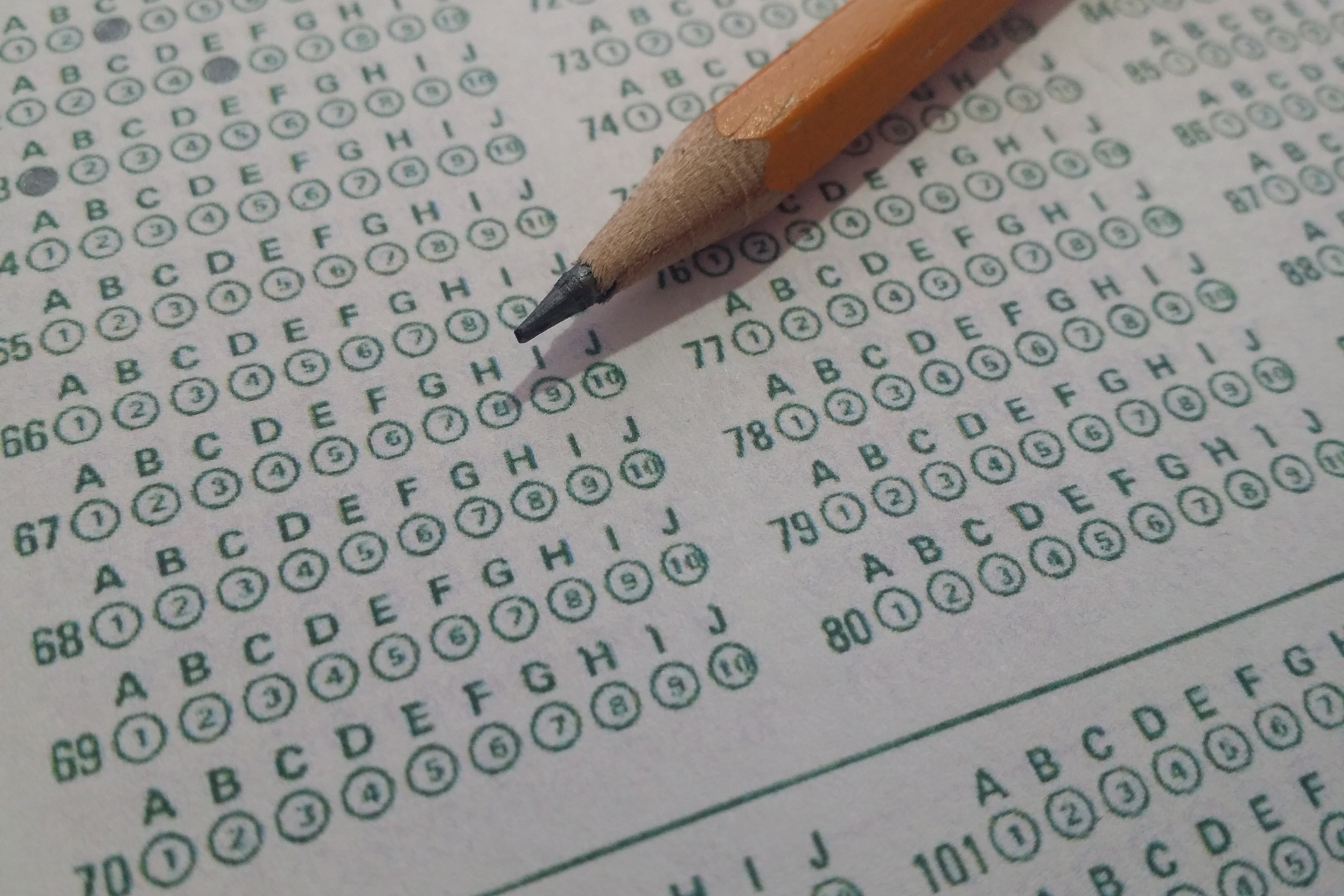What is Math on the MCAT? Understanding the Role of Mathematics and How to Prepare for Test Day
Are you preparing for the MCAT and wondering about the role of mathematics in the exam? Our article "What is Math on the MCAT?" explains everything you need to know about the math section and provides tips on how to prepare for test day.
Posted June 13, 2025

Table of Contents
Free Event

Featuring Radhika G.
If you're planning to take the MCAT, it's important to understand the role that mathematics plays in the exam. While the MCAT is primarily a test of scientific knowledge and critical thinking skills, math is still an important component that can make or break your score. In this article, we'll explore what you can expect from the math section of the MCAT, and how you can prepare to tackle it on test day.
Breaking Down the Math Section of the MCAT: Types of Questions You'll Encounter
When it comes to the math section of the MCAT, you can expect to encounter a variety of different question types. These may include:
- Calculations involving scientific notation
- Algebraic equations and functions
- Trigonometry
- Calculus concepts, such as derivatives and limits
- Interpretation of graphs and data sets
It's important to note that the math questions on the MCAT are typically not as complex as those you would encounter on a traditional math exam. However, you still need to have a solid foundation in mathematical concepts in order to do well on the math section of the MCAT.
One important aspect to keep in mind when preparing for the math section of the MCAT is time management. You will have a limited amount of time to answer all of the questions, so it's crucial to practice pacing yourself and not getting stuck on any one question for too long.
Another tip for success on the math section of the MCAT is to familiarize yourself with the format of the exam. This includes understanding the types of answer choices that may be given, such as multiple choice or fill-in-the-blank, and knowing how to navigate the computer-based interface.
How Much Math is on the MCAT? Analyzing the Weightage of Mathematics in the Exam
Now that you know what types of math questions to expect on the MCAT, you may be wondering just how much of the exam is devoted to math. The answer is that math makes up a relatively small portion of the MCAT, comprising about 10% of the overall exam. However, this doesn't mean that you can afford to neglect your math skills if you want to achieve a high score.
It's important to keep in mind that even though math is only a small part of the MCAT, it can still have a significant impact on your overall score. This is because the math questions on the exam tend to be more difficult and complex than those on other standardized tests. Additionally, the math questions are often integrated with other subjects, such as physics and chemistry, making them even more challenging.
Furthermore, even if you are not pursuing a career in a math-heavy field, having strong math skills can still be beneficial in the medical field. For example, being able to understand and interpret data is crucial for research and clinical practice. Additionally, having a solid foundation in math can help you better understand and analyze medical studies and research papers.
Key Mathematical Concepts to Master for the MCAT: Algebra, Trigonometry, and Calculus
In order to do well on the math section of the MCAT, there are certain mathematical concepts that you'll need to be familiar with. These include:
- Algebraic expressions and equations
- Exponents and logarithms
- Basic trigonometry concepts
- Calculus, including derivatives and integrals
While you don't need to be a math genius to do well on the MCAT, it's important to have a solid foundation in these concepts. This will enable you to solve problems quickly and accurately, allowing you to focus on the other aspects of the exam.
It's also important to note that the math section of the MCAT is not just about solving equations and problems. You'll also need to be able to interpret and analyze data presented in graphs and charts. This means you should be comfortable with reading and understanding visual representations of data, as well as being able to draw conclusions and make predictions based on that data.
Tips and Strategies for Approaching MCAT Math Questions: Time Management, Guessing, and Process of Elimination
Now that you know what to expect from the math section of the MCAT and the concepts you need to master, let's take a look at some tips and strategies you can use to conquer these questions. These may include:
- Managing your time effectively so you don't get bogged down on any one question
- Using the process of elimination to narrow down your answer choices
- Guessing strategically if you're unsure of an answer
- Focusing on the questions that you can answer easily and quickly first, then going back to the more challenging ones
By applying these strategies, you can maximize your chances of success on the math section of the MCAT.
Another important strategy to consider is practicing with sample questions and tests. This will help you become familiar with the types of questions you'll encounter on the MCAT and build your confidence in your math skills. Additionally, seeking out resources such as study guides, tutoring, or online forums can provide you with additional support and guidance as you prepare for the exam.
Common Mistakes to Avoid When Solving MCAT Math Problems: Misinterpreting Data, Calculation Errors, and More
While there are many strategies you can use to succeed on the math section of the MCAT, there are also some common mistakes that you'll want to avoid. These may include:
- Misinterpreting data from graphs or tables
- Getting bogged down in complex calculations and losing sight of the overall question
- Forgetting to convert units when necessary
- Using the wrong formula or equation
By being aware of these pitfalls and practicing your math skills in advance, you can minimize your chances of making these mistakes and maximize your chances of success on the MCAT.
Another common mistake to avoid when solving MCAT math problems is rushing through the questions. It's important to take your time and read each question carefully, making sure you understand what is being asked before attempting to solve it. Additionally, it's important to show your work and double-check your calculations to avoid careless errors.
It's also helpful to practice with real MCAT math problems and to review the solutions to understand the reasoning behind the correct answers. This can help you identify patterns and strategies that you can apply to similar problems on the actual exam.
Top Resources to Help You Prepare for MCAT Math: Books, Online Courses, and Practice Tests
If you're looking to boost your math skills in preparation for the MCAT, there are many resources available to you. These may include:
- Review books that cover the key math concepts on the MCAT
- Online courses and tutorials that offer in-depth instruction and practice problems
- Practice tests and questions that simulate the types of problems you'll encounter on the actual exam
By using these resources in conjunction with your own study efforts, you can ensure that you're fully prepared to tackle the math section of the MCAT with confidence.
How to Create an Effective Study Plan for MCAT Math: Balancing Practice with Content Review
Now that you have a better sense of what to expect from the math section of the MCAT and how to prepare for it, let's take a look at how you can create an effective study plan to maximize your chances of success. This may involve:
- Dedicating time to reviewing key math concepts and formulas
- Practicing your math skills through drills and practice problems
- Taking timed practice tests to simulate the conditions of the actual exam
- Tracking your progress and adjusting your study plan as needed
By balancing content review with practice, you can ensure that you're fully prepared for the math section of the MCAT when test day arrives.
Understanding Your Strengths and Weaknesses in MCAT Math: Identifying Areas that Need Improvement
As you prepare for the math section of the MCAT, it's important to be realistic about your strengths and weaknesses. This may involve:
- Identifying the types of math questions that you find most challenging
- Tracking your performance on practice exams and questions to see where you need improvement
- Seeking out extra help or resources if you're struggling with a particular topic
By being honest with yourself about where you need improvement and seeking out help as needed, you can maximize your chances of success on the math section of the MCAT.
Realizing Success on Test Day: Final Preparation Tips for Tackling MCAT Math Questions
As you approach test day, it's important to keep a few final tips in mind to ensure that you're fully prepared for the math section of the MCAT. These may include:
- Getting a good night's sleep and eating a healthy breakfast before the exam
- Bringing all the necessary materials, including a calculator and extra batteries
- Reading each question carefully and making sure you understand what's being asked
- Staying calm and focused, even if you encounter a difficult question
By following these tips and strategies, you can approach the math section of the MCAT with confidence and maximize your chances of success on this important exam.











